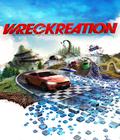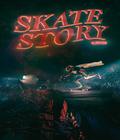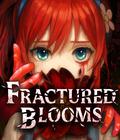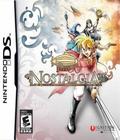Modern Japanese RPGs don't really resemble the games of yore. Even if you ignore all the advances in gameplay or graphics, the fact is that only the tone has changed. Older RPGs were mostly adventure stories, with a group of young and plucky characters who were provided with some sort of motivation to set out on a quest. Before you knew it, they were saving the world and having all sorts of cheerful adventures. As JRPGs have progressed, they've gradually become more serious. Even lighthearted games, like the Tales series and Star Ocean, seem to be more fixated on their messages and symbolism than the adventure. Nostalgia is a return to the simpler days of RPGs, a time when the adventure, not the ending, was the point of the story. In some ways, this makes it a much-needed breath of fresh air. In others ways, however, it reminds us why stories have changed so much.
Nostalgia is set in an alternate version of the 19th century. More modern technology has failed to evolve, and instead, humanity is relying on steampunk airships and magical powers to travel the world. Players are put in control of Eddie, a young London boy and son of a famous Indiana Jones-style adventurer. Eddie's father goes missing one day, and the only clues he leaves behind are his airship and a mysterious young girl with magical powers. Without a moment's hesitation, Eddie commandeers his father's airship and sets off to find out what happened. Along the way, he'll encounter an evil group dedicated to world domination and uncover the secrets of some of the world's greatest ancient treasures. He'll meet a wild cast of characters, ranging from evil scientists working for a secret evil cabal to hot-headed, magic-using witches, to a plucky young orphan boy who inexplicably wields tommy guns one-handed.
From beginning to end, Nostalgia is an homage to the classic adventure-style RPGs, so much so that many elements are almost indistinguishable from games like Grandia and Wild Arms. It doesn't just use clichés but wholeheartedly embraces them. Everything from the heroic young main character to the mysterious evil organization can be traced back to their roots in another game. In some ways, this makes the game feel very simplistic. The characters are mostly tropes, and none of them reach very deep. There are some attempts at spicing them up, but anyone familiar with RPGs is probably going to be able to figure out the character's entire plotline within a few hours of meeting them.
The world is interesting, although mostly for its use of real-world locations. Exploring the pyramids of Egypt or the chilly St. Petersburg streets is a touch more interesting than exploring another mummy-filled dungeon, bringing back memories of games like Illusion of Gaia or Terranigma. However, Nostalgia's biggest problem is that it relies so heavily on … well, nostalgia. To anyone who isn't noticing all the callbacks or references to older RPGs, the game is just going to feel simple, and in many ways, it really is. The fun of the story is in traveling back to a simpler time, before the complex and insane stories of modern RPGs. To someone who doesn't get that nostalgic warm feeling, a lot of the fun of the game is lost.
Nostalgia doesn't stray very far from its roots when it comes to exploration. Most of your time in the game is spent traveling from town to town, looking for the next dungeon that you have to visit. Once you find the dungeon, you pop in, perhaps solve a few simple puzzles, and beat a boss. There isn't really any complexity to the game. There are a few dungeons that have interesting twists to them, but nothing outstanding. There are also a few that are annoying, like an early dungeon in the pyramids of Egypt where you have to hope that you don't randomly fall into a pit trap and have to trek back to where you left off. Most of the dungeons involve wandering from point A to point B and fighting random encounters the entire time.
The combat system in Nostalgia is simplistic to the extreme, so fighting enemies is exactly what you'd expect from any old-school RPG. Your party is made up of four members: a black mage, a thief, a warrior and a white mage. They function extremely close to the stereotypical roles in combat, and anyone who has ever played an RPG will know exactly how to use them. The black mage casts deadly attack magic, the thief steals, the warrior fights and the white mage keeps your party alive.
There are no special tricks to the combat, either. Your goal is to defeat enemies as quickly as possible by lowering their hit points (HP) to 0, while keeping your own characters alive. You can perform special moves by using up your magic points (MP) or simply beat the enemy with a sharp bit of metal until they fall over. There isn't a lot of complexity to the combat, and once you've got a full party, you're basically set. The only real strategy to worry about is your turn order. The higher your character's speed, the more often he gets to attack. Likewise, the more powerful special moves increase the time before you can attack again. It's a minor element of combat, but one that makes it a bit harder to spam the strongest attacks over and over.
However, there is one interesting twist to combat. Outside of the game's dungeons, your party travels around the world on an airship, the Maverick. The ship isn't immune to random encounters, and sky pirates and flying enemies will attack constantly. Instead of fighting these enemies using your normal party members, you fight as the airship. Ship combat is slightly different from the main combat, although it's still pretty simplistic. You have one "party member," the airship itself, but it gains one action for each character in your party, so it can attack four times instead of once. Your warrior makes it ram the enemies with a blade mounted on the front of the ship, your thief mans the close-range guns, and your mage uses the main cannon. Your healer uses a special magical orb to fire deadly lasers at enemies. Party members can also use special skills to modify the airship's abilities at the cost of MP. While the airship has its own HP, the MP comes from the characters, so airship combat functionally has one HP pool and four MP pools.
The other major difference is that enemies can attack from the front or the sides of your airship. Depending on where they are, certain weapons are more or less effective. This is a fairly minor problem, and it's rare that a situation comes up where it really matters which weapon you're using. One other interesting element is that the difficulty of the airship fights is usually altered based on how high your airship is traveling: the higher you are, the greater the difficulty. In exchange, traveling up high allows you to bypass obstacles and move across the world map faster. The higher-up airship battles can be some of the roughest in the game, especially since you only have one HP pool. If you're not cautious, these can lead to a game over far faster than you might expect from such an otherwise easy title.
There isn't a tremendous amount of customization to Nostalgia, although there is some. Each of your four characters will earn SP as your group wins battles. Once a character has learned a new ability, he can invest SP in those abilities to make them more effective. You can make magic spells that take less MP or invest in making your main character's sword hit more often with a special attack. If you invest in enough skills, you can even unlock new skills based on the skill tree that each character has. Some skills are learned normally through leveling, but others must be learned by maxing out certain skills. While it's a neat idea, it doesn't add a tremendous amount of customization. Certain skills are indispensably useful throughout the entire game, and investing in those skills pays off so heavily that you're unlikely to worry about unlocking other skills.
All in all, combat in Nostalgia is a basic and straightforward affair. Most combat involves beating the living daylights out of enemies with your best attacks while casting healing spells from time to time. The only real challenge in combat comes from the rather high random encounter rate. While no single challenge is difficult, fighting enemy after enemy after enemy without a break can wear down your party rather quickly, if you're not careful. However, this is a minor problem at best, and by the time you get your white mage, you'll be blowing through battles with ease. Nostalgia is fairly good about avoiding the grind problem. At no point do you really have the need to grind for levels, assuming you've been investing in skills. Enemies scale very reasonably, and there is little reason to feel the need to fight more than you already have to. Once you get a full party, the only real challenges are the optional bosses that some missions send you to fight. These bosses can hit pretty hard and have a lot of hit points, but a well-equipped team can usually take them down without much trouble.
One of Nostalgia's most annoying features is the Adventurer's Guild. Outside of the main quest, almost all of your time will be spent doing quests as an adventurer. These quests almost always boil down to the same thing: Go to the guild, take a request, and then go trekking back through a dungeon you've already completed in order to find a random object or kill a random boss. As far as game-lengthening exercises go, this is one of the most tedious I've ever encountered. Very rarely is anything different or new in the areas you explore. It is just a lengthy trip back through a long dungeon as you hope to find the trigger to complete the quest. Even more frustrating is that you can't really skip the quests. In order to take higher-leveled quests and get access to some of the better rewards, you have to raise your adventurer level, which you do by turning in quests. If you actually want to fight an interesting encounter against tough enemies, you have to be prepared to spend entirely too much time backtracking. It doesn't help that most of the rewards are useless. Money is the most common prize, and Nostalgia gives you so much excess cash that it seems almost impossible to run out.
Nostalgia's visuals do everything they can to hearken back to the early days of RPGs. The characters are 3-D models, but they tend to resemble the sprites of old, both in movement and design. While this is a great boon to the title's nostalgic value, it looks fairly basic and simplistic most of the time, but not necessarily in a way that is as heart-warmingly pleasing as 8-bit style sprites. There is a nice amount of detail to the characters, and some of the game's cut scenes look surprisingly good. The pseudo-steampunk views of real-world cities are cute but bear very little resemblance to their counterparts. If not for the fact that the cities were named London or St. Petersburg, I would assume that I was just visiting generic villages and cities. The music is good, although not tremendously memorable. Like the visuals, it lends itself very well to the nostalgic atmosphere of the game.
There are few games as aptly named as Nostalgia. Everything, from the plot to the combat and the graphics, exists entirely to evoke that feeling. In many ways, Nostalgia is like a long-forgotten, old-school RPG rather than a new game. It also comes with all the pluses and negatives that you'd associate with those sorts of games. The plot is bright, simple and cheerful, more reminiscent of old adventure stories than the modern-day convoluted story lines. However, it is also very basic and a tad boring, and the characters may even seem childish to modern gamers. The combat is easy to learn but also extremely simple, and anyone without a fondness for old-style, turn-based battles may be left bored. Even the visuals are memorable for the way they resemble old RPG sprites. If you're the kind of gamer who grew up on SNES and PS1 RPGs, then Nostalgia is a welcome trip back to your childhood and is sure to bring forth some fond memories. To gamers without that sense of nostalgia for the older genre, though, the title may be too simplistic and average to really enjoy, especially with so many more exciting and innovative RPGs available on the DS.
Score: 7.0/10
More articles about Nostalgia











 Nostalgia casts you as Eddie, a headstrong Londoner who amasses a group of companions to traverse the world in his steampunk-inspired zeppelin. As you navigate the open skies, youll explore mysterious foreign locales, slay all manner of fantastical enemies, complete a variety of thrilling quests, and ultimately, save the world from unfathomable evil.
Nostalgia casts you as Eddie, a headstrong Londoner who amasses a group of companions to traverse the world in his steampunk-inspired zeppelin. As you navigate the open skies, youll explore mysterious foreign locales, slay all manner of fantastical enemies, complete a variety of thrilling quests, and ultimately, save the world from unfathomable evil.





































